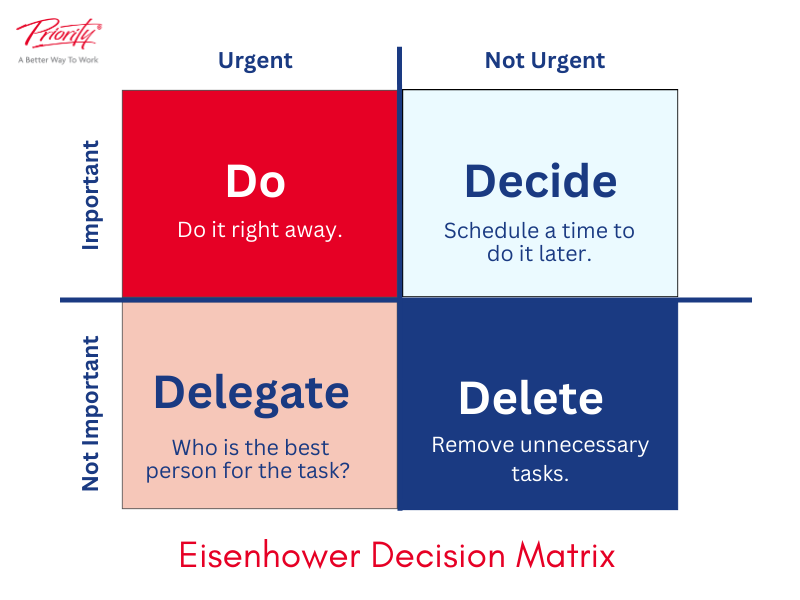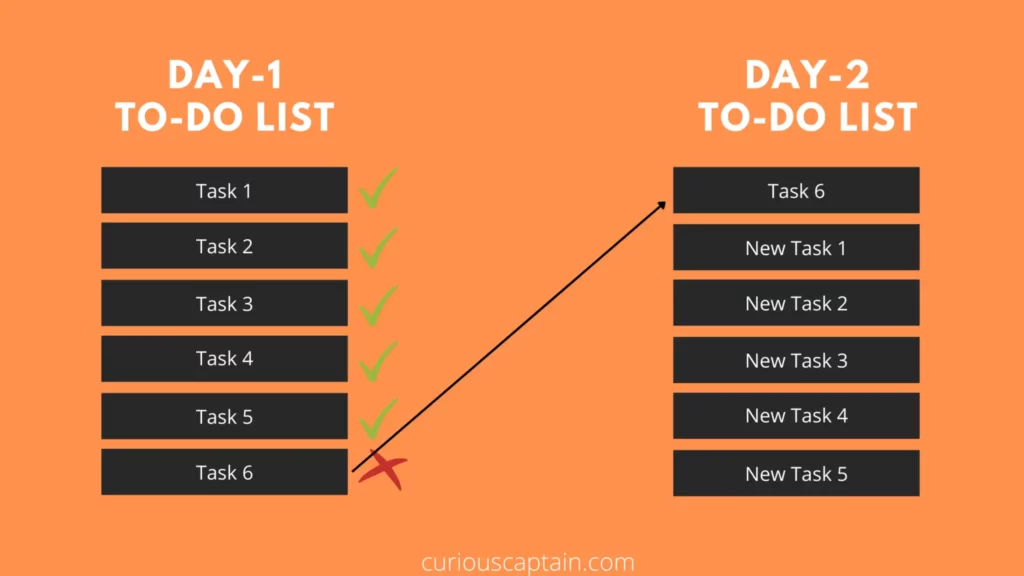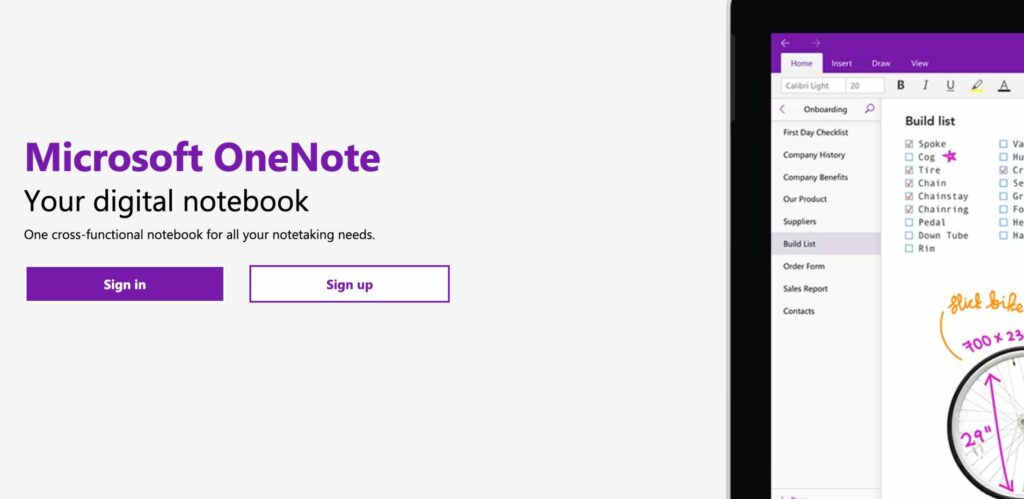Nurses are constantly under pressure at work. Even those with years of experience can still struggle to manage their time and have a satisfying shift. That’s why time management strategies for busy nursing professionals are necessary to develop and maintain the best possible work-life balance. Plus, they’re also essential for giving your patients the best service and care.
Despite the long hours that all nurses are familiar with, there is still only so much time in a single shift and so many responsibilities to manage. This is why time management is such a critical skill for nurses to develop; you can maximise your working hours and minimise stressful situations wherever possible.
In this article, we will outline the 5 steps to developing powerful time management skills, and the many time management strategies for nurses you can use for successful work shifts.
Key Takeaways
- Developing time management skills and strategies is essential for nurses to improve their work-life balance and job satisfaction. It also increases the quality of care that your hospital or clinic provides.
- Prioritise and visualise tasks using to-do lists, calendars, and other tools for time management
- Asking for help from coworkers and supervisors is important for the well-being of yourself and your patients. Your hospital or clinic may offer valuable resources for support. Or, you can ask supervisors to invest in training to improve your time management skills.
The importance of time management in the nursing profession


Effective time management for nurses can mean the difference between a satisfying shift and an exhausting shift. There’s a greater sense of control over your time in the hospital or healthcare centre, an improved attitude when communicating and working with other medical staff and patients, and decreased stress levels.
Hospitals are one of the most fast-paced, high-stress workplaces. Period. They require full mental capacity and physical energy from all of their staff, from doctors to nurses to clinical assistants. The development of time management skills and strategies will transform your day-to-day life and result in decreased anxiety and increased productivity.
Challenges that nurses face in managing time effectively
There are several challenges that nurses must face in the workplace, most of which they encounter every shift. This can make it difficult to effectively manage time.
Here are just 4 examples of time-consuming challenges:
- High number of patients. Nurses often have a significant number of patients to attend to and care for, making it difficult to ensure that everyone is getting enough time and attention. This can also lead to rushed or inadequate patient care, which may result in potentially dangerous outcomes for patients and the hospital itself.
- Interruptions. When emergencies and other urgent situations arise, many nurses can be distracted and interrupted during other less urgent but still important tasks. Even smaller distractions from other members of staff or a patient’s family members can cause a task to be delayed until the next shift, meaning nurses can fall behind on essential research and duties.
- Paperwork. Patient charts, treatment plans, and medication records; Paperwork takes up a significant amount of time between active patient care. In a 2017 study from the UK, all nurses who were interviewed felt that paperwork was taking time away from patients and found the practice almost counterproductive to their real purpose.
- Fatigue. Nursing is a physically and emotionally demanding job. Long hours and shift work can lead to physical and mental fatigue, making it difficult for nurses to stay focused and motivated. This directly impacts the amount of work they can get done successfully in a single shift, all while negatively affecting their own personal health.
Strategy 1: Prioritise tasks


Multi-tasking is not an effective strategy for time management. We understand that sometimes it feels unavoidable, but we’re here to give you methods to reduce the reliance on multi-tasking and instead prioritise the most important tasks first.
Research has shown that multitasking makes you less effective during and after work sessions. This means that important work will be continuously pushed back unless it is very urgent.
Instead, you should shift your mindset to prioritise tasks correctly and work through a list of jobs one at a time. Again, we know this will not always be possible — your role almost necessitates it during emergencies — but it is essential to multitask less and prioritise more where you can.
How to prioritise tasks as a nurse
- Make a to-do list. Write down all tasks that need to be completed each day.
- Prioritise this list of tasks based on a criteria of urgency and importance. If you struggle to find time for this every day, try starting with weekly to-do lists.
- Prioritise patient care. This goes without saying, but patient care will always sit at the top of your to-do list. This includes administering medications, monitoring vitals, and responding to patient needs. All other work is automatically moved to the bottom of the list.
- Delegate tasks. When possible, delegate tasks to other hospital staff and give yourself a chance to catch up on other responsibilities.
- Use technology. There are almost countless programs that you can download straight to your phone, all designed to help you effectively plan and manage your tasks. We often recommend Microsoft To-Do for it’s collaborative features with Microsoft Outlook and Planner.
Try the Eisenhower Matrix to prioritise tasks
How do you know the best way to prioritise tasks on your to-do list? The Eisenhower Matrix is a popular method of sorting your tasks into 4 different quadrants, as seen below.


How does it work?
- Urgent and important tasks will be at the top of your to-do list; they are jobs that cannot be postponed and are essential for your short-term and long-term success.
- Tasks that are urgent but not important for you or your patients can be delegated to nursing assistants or other hospital staff. If a job is not urgent but important to you or your patients, you can schedule it for later in your shift or another day.
- Lastly, if a job is not urgent and not important, it can potentially be discarded, rescheduled, or delegated at your discretion. The Eisenhower Matrix is a powerful way of organising your tasks and prioritising things for the shift ahead.
Use the Ivy Lee Method at the end of your work day
Another way to prioritise your tasks is to use The Ivy Lee Method.


How does it work?
- At the end of each workday, you make a list of the 6 most important tasks that you need to accomplish by the end of your next shift. 6 tasks, no more and no less.
- Order these tasks by level of urgency.
- Once you start these tasks, do not move on to the next task until the current task is complete.
- If you manage to get through all 6 jobs before the end of your shift, you can move on to less urgent or important tasks.
Of course, a hospital environment is guaranteed to throw unexpected tasks and emergencies your way. Try your best to anticipate these sudden additions to your mental to-do list and don’t beat yourself up if a task or two find their way to tomorrow’s list instead. The Ivy Lee Method is designed to simplify your workload and bring clarity to the shift ahead. Give it a try!
Strategy 2: Manage interruptions


It goes without saying, but nurses are going to be interrupted throughout their shifts. There will always be new patients and changes in the conditions of existing patients, and potentially tasks delegated to you by other nurses or staff. So how do you minimise these distractions from your own pre-planned tasks?
Of course, there’s no stopping emergencies from impacting your shifts. We’ll be focusing on strategies for reducing non-urgent distractions, giving you more time for the tasks that are important to you and your patients — and leaving space in your schedule to anticipate emergencies. Here are some of the most common interruptions you’ll face as a nurse.
Common interruptions in the nursing environment
- Alarms and pagers. Nurses are frequently interrupted by pagers alerting them or alarms being sounded, which can pull them away from current tasks or momentarily distract them from critical patient care, such as checking doses or administering medicine.
- Patients’ families. Family members or loved ones may interrupt you to ask questions or express concerns about the patient and their status.
- Noise. Departments throughout the hospital can vary in noise and activity, which can make it hard for nurses to concentrate on the tasks at hand or deliver patient care. Patients and their families may also experience more stress in a noisier environment, making it potentially harder or more time-consuming to deliver care.
- Paperwork. Paperwork and similar administrative work can be time-consuming tasks that take time away from patient care. Other interruptions can also push back critical paperwork, which further postpones patient services or other tasks on your to-do list.
Strategies for minimising interruptions and staying focused
There are dozens of academic studies that have explored the importance of reducing interruptions and distractions. Some strategies may work better for some nurses than they do for others, so it is important to find the right method for you, your mindfulness, and your workload.
Here are two examples of strategies that you can use to minimise distractions.
Use technology to your advantage
Try using an app like Microsoft ToDo to set up a digital to-do list on your smartphone with reminder notifications. This can help keep you focused on what needs to be done, regardless of any momentary distractions or interruptions you’ll face throughout your shift.


You can also configure your notification settings to only show critical or urgent information, such as incoming calls from certain people or job-related notifications. Anything else is muted for you to deal with during breaks or after your shift.
Delegate when possible
If a task or interruption occurs during an urgent matter, see if you can delegate the sudden job to another member of staff. This strategy does depend on other nurses or medical staff being available, but you are more likely to receive help if you offer assistance to others who need it in return. Cultivating your professional relationships and creating a work environment that prioritises support will go a long way in minimising your interruptions and getting tasks done.
Strategy 3: Use time management techniques for shift work


There’s only so much time in a single shift to get your tasks completed, provide proper patient care, and finish paperwork. This is where time management techniques and strategies come in to maximise the hours in your workday. With effective time management and planning, you can accomplish a number of tasks.
On the other hand, poor time management skills can lead to unfinished tasks and a decrease in the quality of care. Every minute counts in a hospital, so it’s critical to manage your time wisely and be prepared to make sudden changes in your schedule for emergencies.
Tips for managing shift work
- Arrive early. If possible, try to arrive 10-20 minutes early for your shift. This will give you more time to plan the day ahead, get started on less urgent tasks, and prepare yourself physically and mentally for your work, without having to rush straight in.
- Take breaks. Skipping or shortening your breaks may give you “more time” in the short term, but it’s ultimately going to do more harm than good. You’re more likely to experience burnout, perform your tasks with less focus and energy, and become dissatisfied with your work. Take breaks, recover from the work you’ve done, and prepare yourself for the next stretch of tasks.
- Allow time for emergencies. Leave space on your to-do list for emergencies and abrupt changes. Planning ahead for these events will make your goals more realistically achievable, and potentially give you more time for other tasks if emergencies take up less time than expected.
- Anticipate your patients’ needs. Between emergencies and urgent tasks, you can try to anticipate the needs of your patients and check in with them. Ask them specific questions about their needs, such as if they need food. Some nurses may bring supplies with them if they think they are necessary. This helps cut down on unnecessary trips and save time.
Strategies for managing time during shift work
Finding ways to maximise your time is essential for making the most of your shifts. Darria Long, an ER Doctor, has an excellent TedTalk on this exact subject.
Having effective time management skills and strategies will increase your productivity, reduce work-related stress, and even provide you with opportunities to get ahead of time-consuming tasks
Here are two strategies you should try:
Create a routine
Get into the habit of getting to work early (if possible), having a to-do list for the day ahead, regularly making rounds to check on patients, and completing other everyday tasks. Having a solid routine based on these tasks will give you more time and energy for the other tasks and emergencies in the shift ahead. This is all about changing your thinking and time management from being reactive to proactive.
Batch tasks
If you have a number of tasks ahead that are all similar or take place in the same area of the hospital, you can batch the tasks together in your schedule to prevent wasting time getting from job to job. Instead of switching between paperwork and administering medicine to patients, you may be able to do all of the routine patient care one after the other and then focus on administrative tasks. This will save you time and mental energy.
Strategy 4: Stay organised


Staying organised is one of the most effective ways for nurses to have a productive and successful shift. It helps you stay on top of your workload while ensuring that you provide the best care possible for your patients.
Organising your notes, your schedule, and your supplies based on your priorities and the needs of your patients will save you time. It may only be a few minutes here and there, but all of those moments will add up to much more time for other tasks. Here are some tips to help you stay organised throughout your shifts.
Tips for staying organised
- Make lists. Keep track of all the details you need to know. Make physical to-do lists, keep a digital backup if possible, and write notes that are essential for delivering top-quality care.
- Chart ASAP. When possible, some nurses will chart their assessments immediately after assessing a patient. They make this easier by parking their computer-on-wheels right outside the patient’s door or in a similarly close-by location. This will keep your notes precise and save you time later.
- Communicate clearly. Communication is a two-way street, of course, but ensuring that all verbal and written information you provide is accurate and clear will save a lot of time later. Patients, families, and other staff may seek you out later for clarification on something they didn’t understand, so it’s better to do it thoroughly and correctly the first time.
- Create a visualised schedule. Either with a physical daily planner or an app on your phone, visually lay out the day ahead and block out time to complete your scheduled tasks. Leave room for emergencies and don’t be dissuaded if your day doesn’t go perfectly according to schedule — it’s bound to happen, but having some kind of schedule is still effective for keeping you organised.
Strategies to help nurses stay organised
When it comes to organisation, the difference between a good shift and a stressful is clear, precise, and accessible information. Technology is your friend here, or if you’re more analogue, there are a variety of physical planners and notebooks to use. Here are two strategies for staying organised throughout your shifts.
Use technology
There are dozens upon dozens of organisational programs to plan your schedule and manage information.
We recommend using Microsoft Suite programs, such as ToDo or OneNote. These apps allow for concise planning and note-taking, giving you a single hub to look up important information and check your progress for the day.

Use templates
Ready-to-use templates are also available to fit your exact needs or organisation preferences. Many of these templates are easily customisable. If you prefer pen and paper, we recommend finding a planner or printable templates with already-organised sections. Having a printed sheet, for example, that has a space for inputting patient information and writing notes will make it easier to keep track of your patients’ needs and ensure that you won’t miss documenting anything important.
Strategy 5: Ask for help!


If you find your workplace to be particularly stressful or disorganised, it is worth reaching out to coworkers and supervisors for support. Asking for help can make a world of difference, and you never know if your feedback could be the catalyst for cultivating a better work environment. Here are some tips on how to ask for help and support.
Tips for asking for help
- Identify your needs: Try to be specific about the kind of help you need. Do you find it hard to locate the supplies you need? Ask your supervisor to look into a better organisational process for storing medicine and other tools. If you need help with completing a surplus of paperwork, try communicating clearly with your coworkers and collaborating to find the fastest way through the work without sacrificing quality.
- Build relationships: If you are willing to help your coworkers, they will be much more willing to help you in return. It’s important to nurture your professional relationships and do your best to create a supportive work culture.
- Be open to feedback: Your coworkers or supervisors may have solutions or feedback on how you personally can improve your workflow and time management. Be open to these suggestions and try your best to come to an agreement that benefits you and your fellow nurses.
- Show gratitude: If you show appreciation to those who help you, it will go a long way in strengthening those professional relationships and raising your chances of receiving assistance the next time you need it.
Strategies to help nurses get support
Sometimes, the solutions you need are bigger than just helping you finish a single task. Hospitals can need improvement across the board, whether it’s for their organisation or the support they give their healthcare professionals. Here are two strategies that can improve your workflow in the long term.
Time management training
You can either pursue this training on your own or ask your supervisor to invest in it for entire departments or teams. There are highly effective and beneficial time workload management courses that can save nurses time and energy, resulting in a productivity boost across the hospital or healthcare facility.

Extra resources
Your workplace may already have a number of resources that you’re yet to take advantage of, or you can craft a proposal to convince them to invest in resources. For example, most hospitals offer Employee Assistance Programs (EAPs) that provide confidential counselling and support services.
Effective time management skills are critical for nurses to achieve a healthy work-life balance and provide the best possible care for their patients. Hospital and nursing shifts are longer than your average workplace, but there is limited time in the day to get things done. Plus, there are so many responsibilities that nurses must manage.
So now, we encourage you to try implementing one or potentially multiple strategies for time management success. Having strong time management skills and strategies on an individual level can be life-changing, but it’s also important to consider whether your workplace is offering optimal support.
If you’re looking for more information on soft skills training for health workers or time management training opportunities, give us a call at 1300 187 203.
